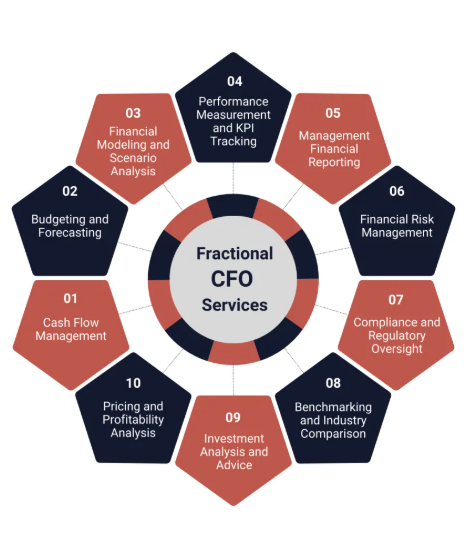If you feel your business could use some expert financial guidance but you’re not ready to commit to a full-time Chief Financial Officer (CFO), you’re not alone. Many growing companies face this challenge. A fractional CFO can provide the expertise you need without the burden of a full-time salary, offering many of the same benefits as a traditional CFO at a fraction of the cost.
What Is a Fractional CFO?
A fractional CFO is a financial expert who works with businesses on a part-time or project basis. Instead of hiring a full-time CFO, which can be expensive, a fractional CFO provides high-level financial guidance when your business needs it most. This flexible arrangement allows companies to access experienced financial leadership without the commitment of a permanent hire.
Why Would You Need a Fractional CFO?
There are several reasons why a fractional CFO might be the right fit for your business:
- Rapid Growth: If your business is expanding quickly, you need a financial strategy that supports that growth.
- Fundraising: If you’re seeking investors or capital, a fractional CFO can help craft a compelling pitch and guide the process.
- Financial Disorganization: When your financial processes are chaotic, a fractional CFO can help bring order and clarity.
- Facing Financial Challenges: If you’re dealing with complex financial issues, a fractional CFO can offer expert insights to solve them.
How a Fractional CFO Can Impact Your Business
Hiring a fractional CFO can significantly improve your business’s financial performance. Here are some key metrics that show the potential benefits of working with a fractional CFO:
- Annual Revenue Growth: Companies with a fractional CFO can experience a 25-30% increase, compared to the industry average of 10-12%.
- Operational Cost Reduction: Fractional CFOs can reduce operational costs by 15-20%, while the industry average is just 5-7%.
- Decision-Making Quality: The quality of financial decisions improves by 78% with a fractional CFO on board.
- Cash Flow Accuracy: Cash flow management is 85% more accurate with the help of a fractional CFO.
- Fundraising Success: Businesses with fractional CFOs have three times the success rate in fundraising compared to the industry standard.
What Does a Fractional CFO Do?
Fractional CFOs are versatile and can handle a wide range of financial tasks depending on your business’s needs. Some of their responsibilities may include:
- Improving financial reporting processes
- Creating realistic budgets and forecasts
- Analyzing cash flow and financial performance
- Developing strategies for growth or cost reduction
- Preparing for fundraising or acquisitions
- Implementing financial systems and processes
How to Know If You Need a Fractional CFO
Here are a few signs that it might be time to hire a fractional CFO:
- You’re making major business decisions based on intuition rather than reliable financial data.
- Your business is growing, but profits are stagnating.
- You find yourself spending too much time managing finances instead of focusing on core business activities.
- You’re planning significant changes, like seeking investment or expanding rapidly.
What to Expect When Working with a Fractional CFO
When you bring a fractional CFO into your business, they will first conduct a thorough review of your financial situation. Expect them to ask insightful questions and uncover potential issues you didn’t know existed. This process will help identify areas for improvement and set clear priorities for your financial strategy.
From there, they will collaborate with you to create a plan for your business’s financial future. You’ll have regular check-ins to monitor progress, and they will be available whenever you encounter unexpected financial challenges.
Conclusion
A fractional CFO can be an invaluable asset to your business, providing expert financial leadership without the cost of a full-time hire. By working with a fractional CFO, you can navigate financial challenges, optimize your resources, and position your business for sustainable growth and long-term success.


